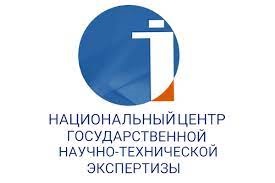THE USE OF BORROWED EMOTIVE VOCABULARY IN TEXTS OF MEDIEVAL ARTISTIC POETIC WRITTEN MONUMENTS
https://doi.org/10.55491/2411-6076-2022-3-69-80
Abstract
Many abstract concepts in modern Turkic languages are borrowed from Arabic and Persian and have free use in the language system of the Turkic peoples. The use of some emotive lexical concepts that are absent in the Turkic languages, including Kazakh, can be traced in the texts of medieval written monuments. Emotive vocabulary is widely used in the fiction of the modern Kazakh language, and in colloquial speech. Since then, emotive lexical units have become the richest lexical means of language, firmly entrenched in our vocabulary. In this regard, this article in the XIII-XIV centuries examines the features of the use of emotive vocabulary in the texts of written monuments borrowed from Arabic and Persian languages, continuity with the modern Kazakh language. In the language of monuments of artistic poetic writing that have come down to our era, the special use of emotive lexical units was used by Turkic poets to glorify Allah, preach Islam, describe the beauty of a girl and glorify relationships between people. The article classifies Arabic, Persian emotive lexical units in the texts of written monuments of the Golden Horde era within the framework of the functional and semantic field, analyzes the continuity with the modern Kazakh language. As a result of the research, the main emotive concepts on the content of written monuments are revealed. That is, the emotive concept of "love" is systematized into microconceptual models of "love", "joy", "regret".
References
1. Mansfield P. (1978) The Arabs. – Penguin Books. Revised edition pudlished in Pelikan Book. Cox& Wyman Ltd, London. (in English)
2. Abilgazy" Turkic Chronicle " (XVII c.) version of P. I. Demezon. – 183 P.ү (in Old Turkic)
3. Baitursynov A. (1992) Language lesson. - Almaty: native language, 1992. - 444 P.ү (in Kazakh)
4. Bally S. (1961) French stylistics / Trans. From the French: edited by E.N. Etkind. - Publishing house in. lit., 1961.ү (in Russian)
5. Descartes R. (1989) The Passions of the Soul: Op. in 2 vols. – M., 1989. – Vol.1. – pp.481-572.ү (in Russian)
6. Ancient Turkic Dictionary (1969) – L.: Nauka, 1969. – 676 p.ү (in Russian)
7. Izard K. (1999) Psychology of emotions. trans. from English. – St. Petersburg.: Peter, 1999. – 464 p.ү (in Russian)
8. "Zhamiat-tauarikhy" by Kadyrgali Kosmuly (XV c.) version of N. I. Berezin. – 163 P.ү (in Old Turkic)
9. Kazakh manuscripts: ancient Turkic and Kazakh written literary heritage (from the V century BC to the XX century BC) (2012) 10 – volume edition. Mayti Simit nom Bitik-Almaty: El-shezhire PF. – 2012.ү (in Kazakh)
10. Dictionary of the Kazakh language (1999). - Almaty: Dyke-press. 1999, - 777 P.ү (in Kazakh)
11. Lakoff, J. (2004) Metaphors we Live by: Translated from English [Textү / Ed. and with a preface by A. N. Baranov. – M.: Editorial URSS, 2004. – 256 p. ү (in Russian)
12. Miller B.V. (1989) Persian-Russian Dictionary. – Moscow: State Publishing house of Foreign and National words. 1989. from 668.ү (in Russian)
13. Suyerkul B. (2010) In The "Muhabbatnames" Of Khorezmi (XIV Century.) linguosemiotic space / / Phil. science. Doc. dis. the manuscript. - Almaty, 2010 – 262 p.ү (in Kazakh)
14. Syzdykova R. (2004) Jasaui «Hikmetterіnің tіlі». – Almaty: «Sozdіk-Slovar'», 2004. – 549 b. (in Kazakh)
15. Yusupova A.Sh. (2010) Lexicographic and methodological heritage of the Tatar language (XIX century) – Kazan: Ikhlas, 2010. – 104 p.ү (in Russian)
Review
For citations:
Seitbekova A.A. THE USE OF BORROWED EMOTIVE VOCABULARY IN TEXTS OF MEDIEVAL ARTISTIC POETIC WRITTEN MONUMENTS. Tiltanym. 2022;87(3):69-80. (In Kazakh) https://doi.org/10.55491/2411-6076-2022-3-69-80
JATS XML

















